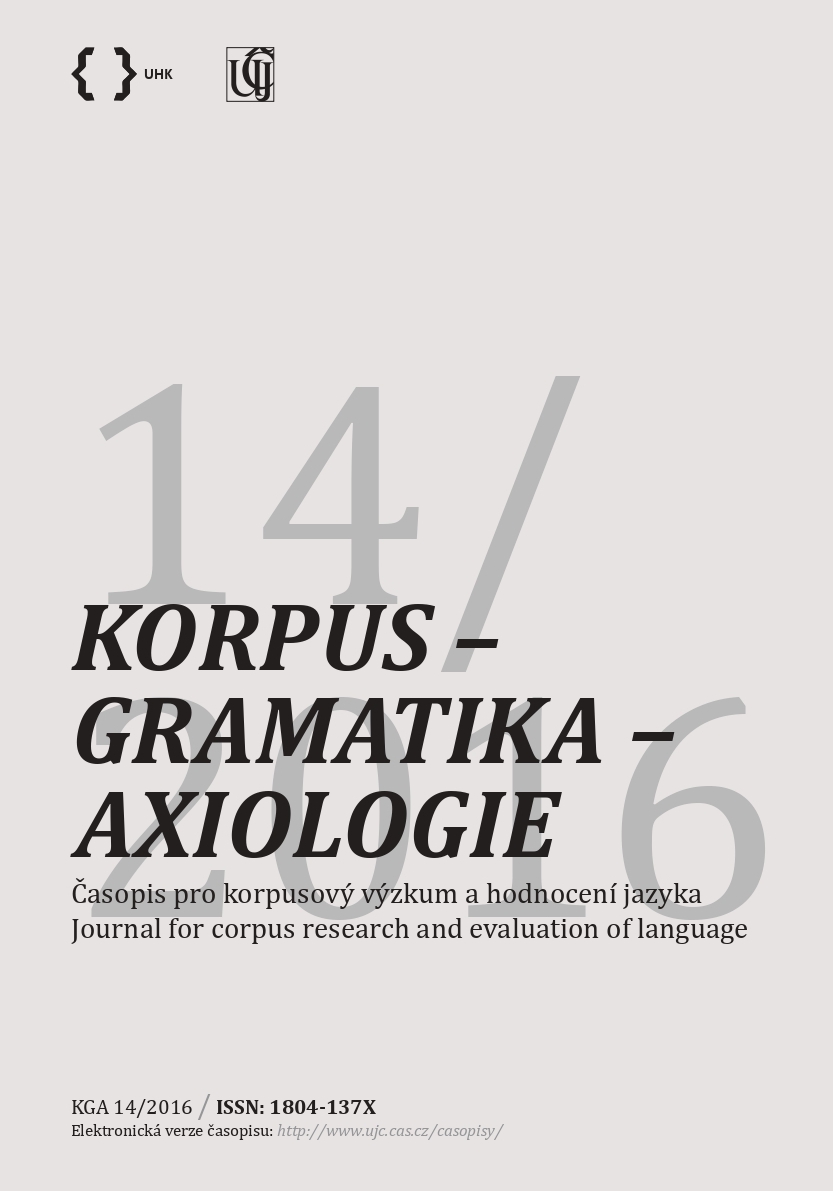K emocionálnosti interjekcí
Towards the emotionality of interjections
Author(s): Josef ŠtěpánSubject(s): Language and Literature Studies, Theoretical Linguistics, Lexis
Published by: AV ČR - Akademie věd České republiky - Ústav pro jazyk český
Keywords: derived (secondary) interjections; emotions; interjection; underived (primary) interjections
Summary/Abstract: The article delimits emotionality and presents a brief survey of research of emotional interjections. The methodology of the research (the issues of classification of the semantic field of emotionality, semantics of interjections, selection of the analysed texts) is outlined. The core of the paper consists in the characteristics of the five basic types of emotions, described on the basis of the material of interjections: (1) psychical states, e.g. pleasure-displeasure, joy, sadness, relief, surprise etc., (2) egoistic emotions (e.g. fear), (3) altruistic emotions (e.g. liking-antipathy, mistrust, admiration, wrath etc.), (4) esthetical emotions (beauty, disgust), (5) ethical emotions (e.g. pity). The sixth part of the article investigates the displays and consequences of emotions (for example, laughing and crying are expressed by onomatopoeic interjections. The general conclusions of the paper are represented by the findings that emotional interjections often have no inherent meaning, but these interjections are usually polysemic (as one interjection expresses more emotions, e.g. ach, bože), and that some emotions are expressed by a number of synonymous interjections (e.g. ‘joy’ jupí, juchú, ach, joj, jé, páni, bože etc.).
Journal: Korpus - gramatika - axiologie
- Issue Year: 2016
- Issue No: 14
- Page Range: 34-53
- Page Count: 20
- Language: Czech

